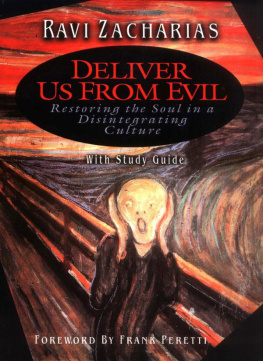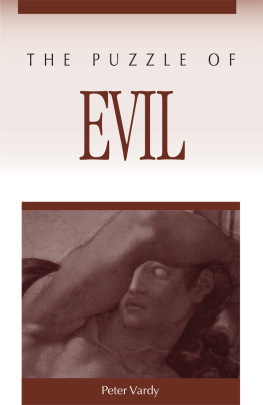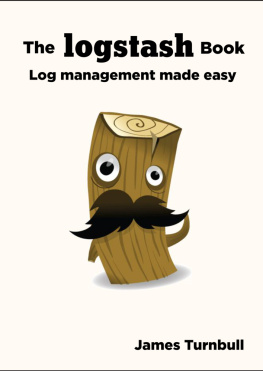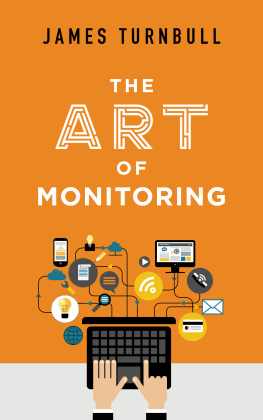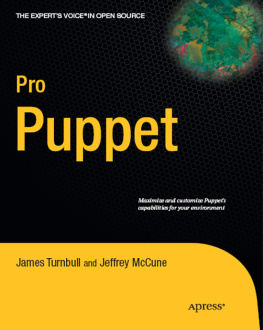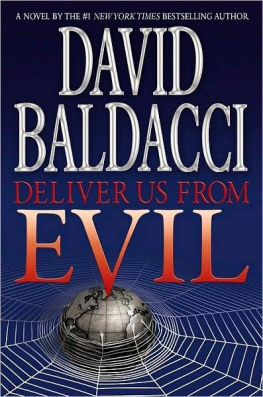Peter Turnbull - Deliver Us from Evil
Here you can read online Peter Turnbull - Deliver Us from Evil full text of the book (entire story) in english for free. Download pdf and epub, get meaning, cover and reviews about this ebook. genre: Detective and thriller. Description of the work, (preface) as well as reviews are available. Best literature library LitArk.com created for fans of good reading and offers a wide selection of genres:
Romance novel
Science fiction
Adventure
Detective
Science
History
Home and family
Prose
Art
Politics
Computer
Non-fiction
Religion
Business
Children
Humor
Choose a favorite category and find really read worthwhile books. Enjoy immersion in the world of imagination, feel the emotions of the characters or learn something new for yourself, make an fascinating discovery.

- Book:Deliver Us from Evil
- Author:
- Genre:
- Rating:4 / 5
- Favourites:Add to favourites
- Your mark:
- 80
- 1
- 2
- 3
- 4
- 5
Deliver Us from Evil: summary, description and annotation
We offer to read an annotation, description, summary or preface (depends on what the author of the book "Deliver Us from Evil" wrote himself). If you haven't found the necessary information about the book — write in the comments, we will try to find it.
Peter Turnbull: author's other books
Who wrote Deliver Us from Evil? Find out the surname, the name of the author of the book and a list of all author's works by series.
Deliver Us from Evil — read online for free the complete book (whole text) full work
Below is the text of the book, divided by pages. System saving the place of the last page read, allows you to conveniently read the book "Deliver Us from Evil" online for free, without having to search again every time where you left off. Put a bookmark, and you can go to the page where you finished reading at any time.
Font size:
Interval:
Bookmark:
Peter Turnbull
Deliver Us from Evil
ONE
Wednesday, March twenty-fifth, 08.35 hours 14.37 hours in which a chilled discovery is made and a murder is announced.
Tranquillity. That was the word. He thought the word to be tranquillity. It was the only word to describe the panorama.
Everything seemed to him to fit perfectly. It seemed to the man that it all fitted so neatly and so beautifully together, like a high quality jigsaw puzzle or a well executed landscape painting. Everything gelled. Nothing jarred. Nothing was out of place. The overriding impression and indeed, he believed, the overall actuality was one of peace and stillness combined. It was, he pondered, quite possible to have peace without stillness and it was equally possible to have stillness without a sense of peace, as in the approach of, and aftermath of, violence, but here, now, was both peace and stillness combined. Tranquillity.
The water first. The water in the canal, dull, grey, dark grey, utterly uninviting in itself, was still, a smooth, mirror-like surface, so still that it could in other circumstances be mistaken for a solid. It was not disturbed by a solitary ripple or wash, by a bird landing upon it, nor a pebble wantonly thrown. There was, observed the man, a certain depth, a certain maturity about the placidity of the canal water, in that because there had been no wind in the night, nor during the previous day, the water had fully settled over time into a great calm. So it seemed to the observer.
Then, secondly, there was the ribbon of land at either side of the canal. Again, also so still, the coal black towpath glistened with isolated frozen droplets of water amid the grit, and the close cropped vegetation at both sides of the towpath was covered with a thick layer of hoar frost. It was solid, stiff, unmoving. A very late frost for the time of year, but nonetheless it was a frost-encased landscape which, like the canal, seemed to the man to be gripped with a stillness that was greater, deeper somehow, than the state caused by a simple absence of movement. The flat fields beyond the canal, surrounding it, were similarly covered in a thick layer of frost, as were the clipped hedgerows which enclosed the fields.
And, thirdly, there was the sky. A great sheet of low, grey cloud that covered the scene from skyline to skyline to skyline through 360 degrees, and with no clear, definite boundary determining where land ceased and the sky began. That was the scene which met the man and reached his soul and it was the scene which imprinted itself indelibly upon his memory. It was also the landscape wherein the stillness was compounded by the silence. No bird sang. There was no distant lowing of cattle, and, it being the early twenty-first century, no unseen aircraft was to be heard flying overhead and there was no distant rumble of traffic. Perfect stillness, and also a silence so profound that the man believed he could verily hear it, for silence, he believed, does have a sound.
The woman also seemed, to the man, to gel smoothly with the calm, silent, white landscape. She was still; utterly motionless, making no sound. He had first seen her from a distance of perhaps one quarter of a mile, noticing first her dark hair which stood out against the background, the remainder of her being well camouflaged by the long white coat and the white slacks beneath the coat and by the flimsy white stiletto heeled shoes she wore. Not, in the mans view, particularly sensible clothing or footwear to be walking in. In such conditions ones survival might depend upon one being conspicuous. Dark clothing in a white landscape, high visibility clothing at night, or when out on the hill, that was the rule. And kit to suit the purpose; that was also the rule. The woman increased her level of camouflage by being still, as totally devoid of any movement as her environment. The man had learned early in life that being still, just standing or sitting motionless is, in itself, a very effective form of camouflage. He had often seen how just the slightest movement can betray the presence of something, man or beast or fowl, sometimes something very large and which would otherwise have gone completely unnoticed. He later thought that, had it not been for the dark hair, distinct like a black dot on a white background, he might not have seen her until he was just a few feet distant, she being so rigidly stone-like. The woman, he noticed, sat on the coarse grass bank of the canal with the towpath between her and the water, just staring out across the flat morning landscape of the Vale of York. The man steadily approached the woman and as he did so, made the decision to contaminate the silence by deliberately treading on the grit on the towpath so as to create a little sound. Even though he was approaching from the side of the woman he felt it did not do to come upon her without advertising his presence. He was loath to pick up a stone and throw it into the water ahead of him, knowing that the splash would, in that state of natural serenity, be easily heard by the woman if she was of normal hearing, but stepping from the grass on to the towpath and thus causing the soles of his hiking boots to crunch-crunch-crunch upon the loose grit was, he thought, sound sufficient and a sensitive announcement of his presence.
The woman, however, did not turn at the sound of his footfall as he had fully expected her to, in fact she did not move at all but continued to remain sitting upright with slightly bent legs and hands resting together in front of her, staring with wide eyes across the patchwork of flat, whitened fields. As the man slowly, and with growing curiosity, approached the woman, something caused him to halt, to stop in his tracks. For a few seconds there was just him and her and the stillness and the silence. He then, with growing concern, broke the silence by saying with a slightly raised voice, to ensure that it carried the ten or fifteen feet which separated them, Good morning, and the instant that he said it he realized that he was looking at the first corpse he had seen.
The man had, in recent years, often thought that it had been quite an achievement for him to have reached his mid sixties without ever having seen a dead body. He had avoided military service and had gone on to lead a pleasingly quiet life. His two older brothers had undertaken the unpleasant duty of identifying first their deceased father, and some time later, after years of pining, the corpse of their mother. So that all he had seen of his parents upon their death were highly polished pine coffins being carried into a church, then each out again before being lowered into a neatly dug hole. He was a man wholly appreciative of and grateful for his achievement, though he conceded that achievement might not be the correct word. His good fortune might, he thought, be better, and a more appropriate description. Not for him warfare or survival in a war zone, nor fighting for his life amid dreadful natural disasters of hurricane and flood and fire, but a quiet life, unadventurous, unimaginative, sometimes mind-numbingly routine, and now it was as if some greater power had deemed that he was not going to escape the experience that was the lot of so many millions worldwide. Here was a dead body for him to gaze upon and yet who, despite being deceased, was nonetheless wholly in keeping with her surroundings. A woman in her early middle years, who had just the slightest trace of a smile about her mouth and who also displayed a look of peace. It all seemed to gel, as he had at first thought, so utterly completely, like a jigsaw puzzle. Not a piece missing nor out of place.
The man quickly glanced at his watch: eight thirty-five hours. He did so because he thought the time of his discovery might be of some significance. He walked on with a profound sense of reverence as he passed the corpse, even though it might seem that he was leaving the seated woman to her reveries, but the onward path was known to the man as being the speediest route to the nearest public telephone.
Font size:
Interval:
Bookmark:
Similar books «Deliver Us from Evil»
Look at similar books to Deliver Us from Evil. We have selected literature similar in name and meaning in the hope of providing readers with more options to find new, interesting, not yet read works.
Discussion, reviews of the book Deliver Us from Evil and just readers' own opinions. Leave your comments, write what you think about the work, its meaning or the main characters. Specify what exactly you liked and what you didn't like, and why you think so.

